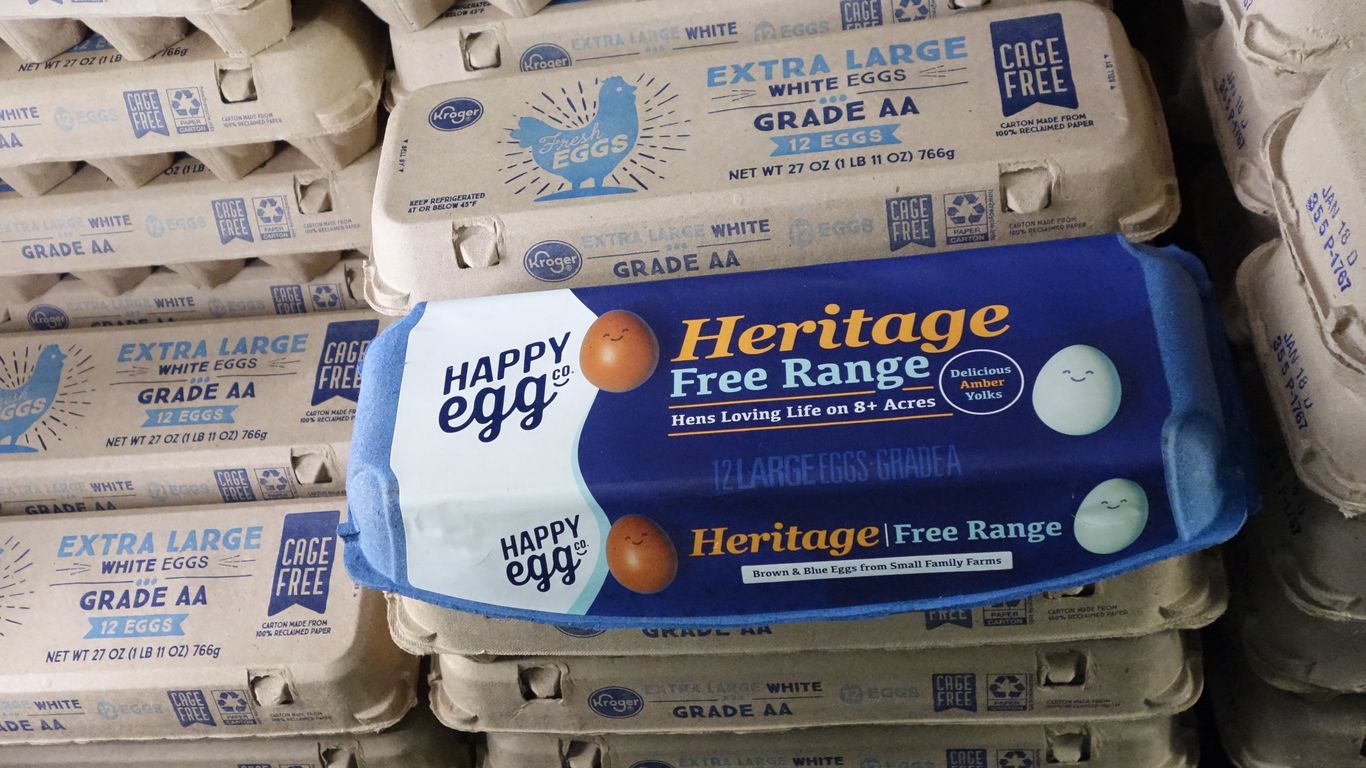
The Great Egg-splosion: Why are Eggs So Expensive?
Easter is just around the corner, and for many, that means baskets overflowing with colorful eggs, delicious treats, and… sticker shock. Egg prices have reached unprecedented heights, leaving consumers scrambling to understand why a simple dozen eggs now costs more than a fancy coffee. The current situation is a complex interplay of several factors, painting a picture far more nuanced than a simple supply-and-demand explanation.
One key culprit is avian influenza, a highly contagious bird flu that has ravaged poultry flocks across the country. This devastating disease has resulted in the culling of millions of laying hens, dramatically reducing the overall egg supply. Farmers, already facing increased feed costs and labor shortages, are struggling to keep up with demand, leading to a significant price hike at the wholesale level.
This wholesale price increase, however, doesn’t fully account for the dramatic price jump consumers are experiencing. While it’s true that higher wholesale prices directly impact retail costs, other factors are at play. Increased transportation costs, fueled by rising fuel prices, add to the burden. These increased transportation costs are passed down the supply chain, increasing the final price consumers pay. Furthermore, the general inflation impacting nearly every aspect of our economy also contributes to the escalating price of eggs.
Beyond these tangible factors, there’s a more subtle element at work: the perception of value and consumer behavior. With rising food costs across the board, consumers might be less price-sensitive when purchasing essential items like eggs, potentially leading to a less elastic demand curve. This means that even with higher prices, the demand for eggs doesn’t drop as drastically as one might expect, further exacerbating the price increases.
Furthermore, the recent claims by certain political figures attributing past price drops to specific policies are misleading and fail to address the multifaceted nature of the current situation. While past interventions may have had some impact, they don’t account for the confluence of factors driving the current record-high prices.
So, what can we expect in the future? While some experts predict a potential easing of prices as poultry flocks recover from the avian flu, this recovery is unlikely to be swift. The lingering effects of the disease, coupled with ongoing inflationary pressures and fluctuating fuel costs, suggest that eggs will remain a relatively expensive commodity for the foreseeable future.
This situation highlights the fragility of our food system and its vulnerability to a range of interconnected factors. From disease outbreaks to geopolitical events, the price of even a seemingly simple item like eggs can be a complex reflection of the wider economic and environmental landscape. Consumers can expect to continue seeing fluctuations, and perhaps even a sustained increase in egg prices, until a combination of factors lead to a rebalancing of the supply and demand equilibrium. For now, it seems we’ll just have to accept paying a premium for our morning omelets.



Leave a Reply